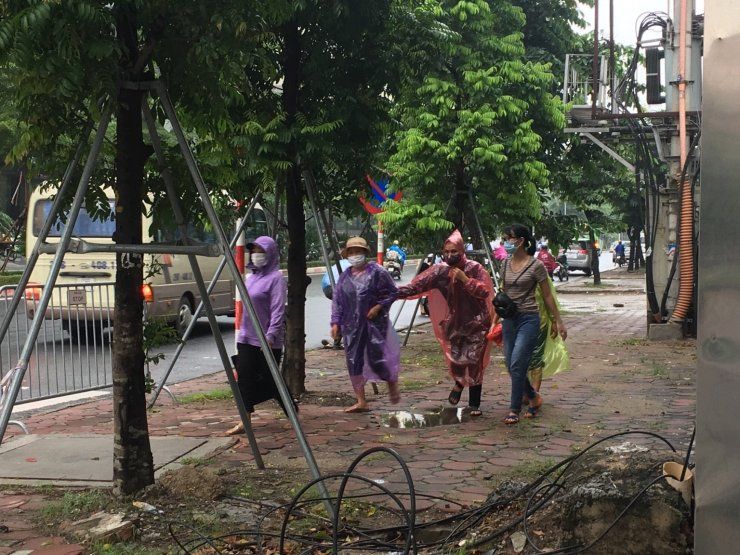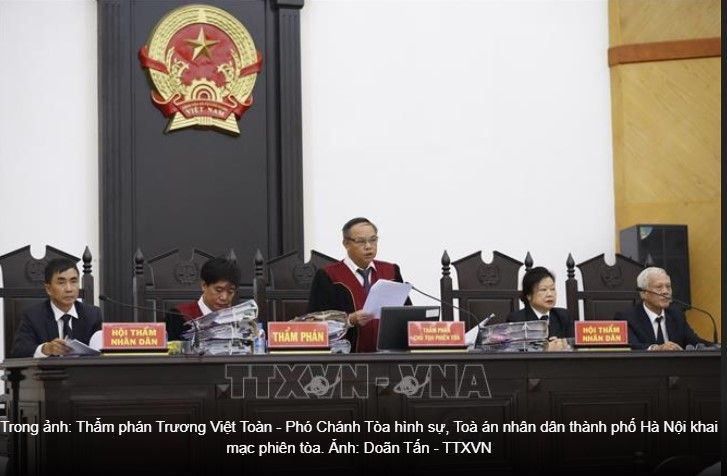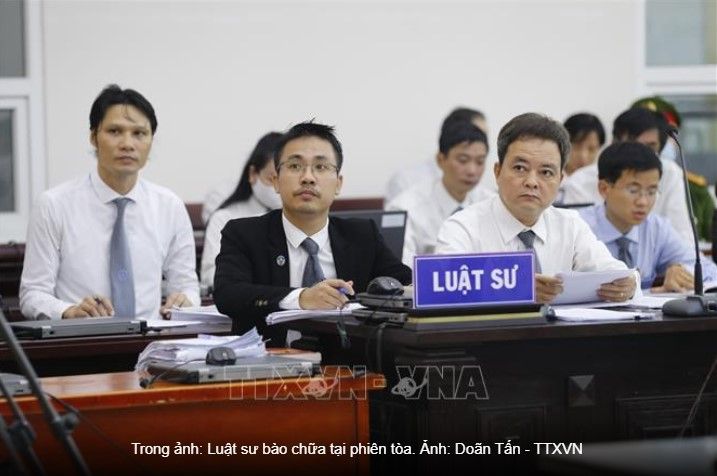Religion Bulletin - May 2025: Trial Continues for Two Members of Tịnh Thất Bồng Lai; Two Independent Protestant Pastors Sentenced
Trial of Two Tịnh Thất Bồng Lai Members Moves Forward On May 21, 2025, authorities in Long An Province continued

The 10-day trial of the Dong Tam Incident promises to be a long and tedious process, not only for the people involved but also the concerned audience. If you don’t have time to follow live updates, below is a summary of the main events throughout the day.
Luat Khoa and The Vietnamese magazines will produce summary reports at the end of each day until the end of the trial.
Of the 29 defendants, 25 are accused of “Murder” under Article 123, section 1, clauses (a), (d), (n), and (o) of the 2015 Penal Code.
Another four individuals are being tried for “Obstructing officers in the performance of their duty” under Article 330, section 2, clause (a) of the 2015 Penal Code.
There are 15 attorneys representing the defendants, hired by the defendants and their families. The other 18 attorneys were appointed by the court.
The trial is expected to last 10 days.
Top level security measures were applied in the so-called public trial. Police imposed blockades and restricted access around Pham Van Bach Street where the People’s Court of Hanoi is located. The police put up barricades preventing defendants’ family members and citizens from approaching the court area.
One family member told Luat Khoa that more than 20 policemen had surrounded her house since yesterday. This morning, she had to lie to the surveillance police to get through their siege and head to the courthouse.

During the lunch break of the trial, a collective of attorneys lodged an urgent protest to the chief justice of the People’s Court of Hanoi, demanding the trial panel respect the defendants’ right to defense and the attorneys’ right to represent the defendants, including the right of the attorneys to have direct contact with the defendants.
In the morning session of the trial, when the trial panel paused to conduct private discussions, the security force at the courtroom prevented the attorneys from interacting with the defendants.
As the trial panel resumed, attorney Dang Dinh Manh demanded the attorneys’ right to have direct contact with the defendants whom they were representing in court.
However, the chairman of the trial (Judge Truong Viet Toan) publicly announced “since the attorneys had time to work on the case files, had time to meet with the defendants in prison, now it is no longer necessary for the defendants and their attorneys to have any further contact at the court during the trial.”
Despite one attorney pointing out this pronouncement fundamentally violated section 4 article 256 of the Criminal Procedure Code, the chairman of the trial ignored the protest.

On September 3, 2020, a group of 13 attorneys representing the defendants co-signed a petition to the chairman, the chief justice of the People’s Court of Hanoi, and the chief procurator of the People’s Procuracy of Hanoi.
The petition called for attention to many incorrect and false details in the indictment by the People’s Procuracy of Hanoi, including distorted information and statements that are contradictory to the many versions of the event published by the Ministry of Public Security after the incident.
The petition also raised various and constant obstacles met by the attorneys during the whole process, from investigating, prosecuting and final preparation stages for the trial. The attorneys were not allowed to hold private meetings with their clients and were barred from accessing the case files until the very last minute.
At the courtroom, the chairman of the trial when responding to the petition only granted permission for the attorneys to watch videos in the case files during the trial, rejecting their request to obtain copies of the photographs and videos mentioned in the prosecutor’s files regarding the case.

On September 6, Phil Robertson, deputy Asia director of Human Rights Watch, issued a statement on the case:
“There are major concerns about due process and the right to a fair trial for the 29 villagers facing charges for incidents in Dong Tam. Use of torture and forced confessions are common in police custody in Vietnam. The courts are far from independent and predetermined outcomes dictated by the ruling communist party are trademarks of Vietnam’s so-called justice system. Defendants’ access to their lawyers is extremely limited and occurs only after the police have completed their interrogations and finished their investigation.
There are still many unanswered questions about what happened during the Dong Tam raid that may never be answered in Hanoi’s rush to convict these defendants. Quite clearly, the authorities want to hit them with very harsh penalties to warn off others who might dare to challenge state authority in the future. Given the widespread interest in this case, Vietnam should allow independent international observers including diplomats, journalists and NGOs to observe the trial, and end harassment and surveillance of the family members of the accused.”
Meanwhile, on September 4, 2020, 11 civil society organizations penned an open letter addressed to Elisabeth Tichy-Fisslberger, president of the UN Human Rights Council, calling on the UN to demand that Vietnam conduct a “fair and open trial” in this case.
According to information published by Ms Do Thu on her social media, her father, Trinh Ba Khiem, was arrested this morning while attempting to attend the trial, only to be released later in the evening of the same day.
Mr. Khiem’s sons, Trinh Ba Phuong and Trinh Ba Khiem, and his wife, Can Thi Theu, who had been posting information about the Dong Tam Incident on social media and showing support for the Dong Tam villagers, were all arrested on June 24 2020 in a separate case.
Vietnam's independent news and analyses, right in your inbox.